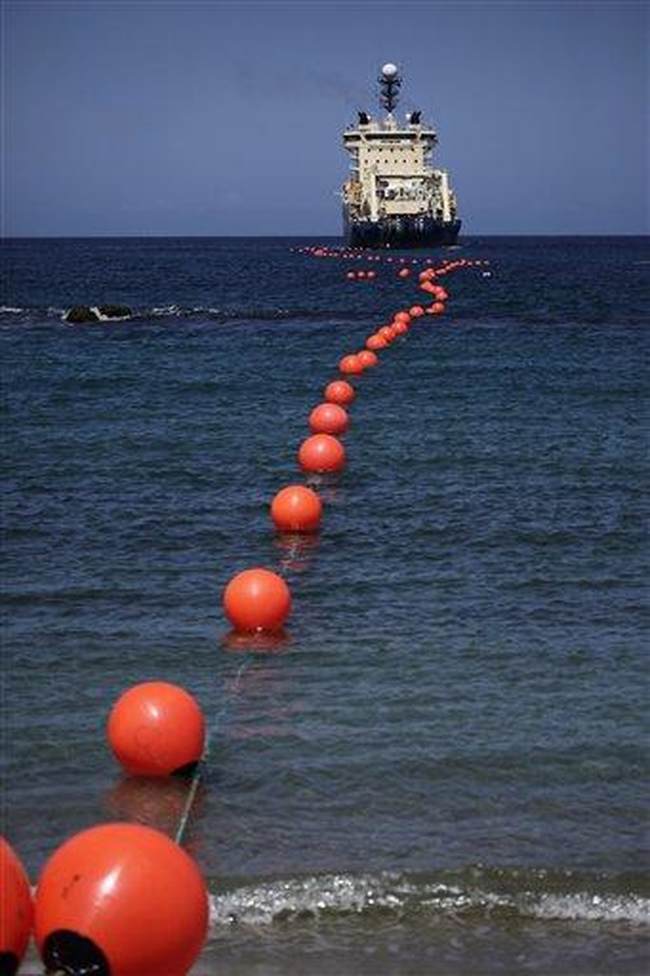
It seems that China might be getting into the hybrid warfare game like it’s neighbor Russia. Last week an undersea cable to Taiwan was cut and the suspected ship is owned by a Chinese businessman.
Officials in Taipei discovered that four cores of an international submarine cable, which transmits data to America’s AT&T, were left ruptured early on Jan 3.
Tracking data revealed the Shunxing39 cargo vessel had dropped its anchor around the rupture site near the port of Keelung, according to Taiwan’s coast guard.
The Shunxing39 sails under the flag of Cameroon, but officials in Taiwan have pointed out it is owned by Jie Yang Trading Ltd, which is registered in Hong Kong, and owned by Chinese citizen Guo Wenjie…
“This is another case of a very worrying global trend of sabotage against subsea cables,” a senior Taiwanese national security official told the Financial Times.
Taiwan’s Coast Guard approached the ship and inspected it from the outside but wasn’t able to board because of bad weather. They had to let the ship continue on to its destination, a port in South Korea. But Taiwan apparently has evidence the ship was involved based upon its location and the location of the damage.
Authorities in Taiwan suspect that the Shunxing39 intentionally damaged the cable by dragging its anchor, supported by ship tracking data that showed the vessel lingering near the rupture site for an extended period.
In November two undersea cables in the Baltic Sea were cut in what appeared to be an act of sabotage. One of the cables handled communications to Sweden and the other connected Finland and Germany. So the two countries that just joined NATO and one of the Europeans countries sending Ukraine weapons were all impacted.
“Nobody believes that these cables were severed by accident,” Germany’s minister of defense, Boris Pistorius, told reporters ahead of a meeting of European security officials in Brussels.
He did not believe that either of the cables could have been damaged by ships accidentally dropping their anchors. “Therefore we must state — without concrete knowledge of who was responsible — that this was a hybrid action,” he said. “And we must assume, without being certain, that this was sabotage.”
The ship suspected in those acts was the Yi Peng 3. Investigators suggested the Russian GRU may have induced the captain of the ship to drag his anchor across the cables.
NATO countries’ naval vessels detained a Chinese-owned bulk carrier, the Yi Peng 3, on suspicion that it deliberately dragged its anchor in order to cut two data cables in the Baltic Sea. Since then the Chinese ship has been at anchor—apparently on the instruction of the Beijing authorities—in the Kattegat, the straits between Denmark and Sweden.
The WSJ also quotes investigators who say that Russian intelligence “induced” the merchant ship’s Chinese captain to conduct the sabotage. Western officials would like to quiz the crew about this. China, so far, says no.
On Christmas Day yet another Finnish data cable was cut. Authorities in Finland seized the Russian ship responsible the next day. They believe it is part of Russian’s shadow fleet of tankers that help it evade US and European oil sanctions.
The Eagle S, carrying Russian oil, was seized by Finnish authorities on 26th December following the incident, which occurred near the Finnish-Estonian border…
Finnish authorities suspect that the Eagle S is part of a “shadow fleet” of ageing tankers used to circumvent international sanctions on Russian oil. The vessel’s cargo of 35,000 tonnes of unleaded petrol has been seized by Finnish customs, and the Finnish National Bureau of Investigation is conducting a thorough investigation.
The owners of the tanker, United Arab Emirates-based Caravella LLC FZ, have challenged the seizure, arguing that it was conducted in international waters. However, the court dismissed this claim and upheld the continued detention of the vessel.
All of this hybrid war behavior is designed to do exactly what it’s doing. The autocracies of Russia and China take advantage of the freedom created by international law to sabotage infrastructure in a way that makes it difficult to determine who was responsible. The captains can deny they were induced to do this and claim it was an accident, but as the German authorities noted above, no one believes the denials. However, as a matter of law, the Russians and the Chinese might be able to get away with it. That’s clearly part of the plan.











